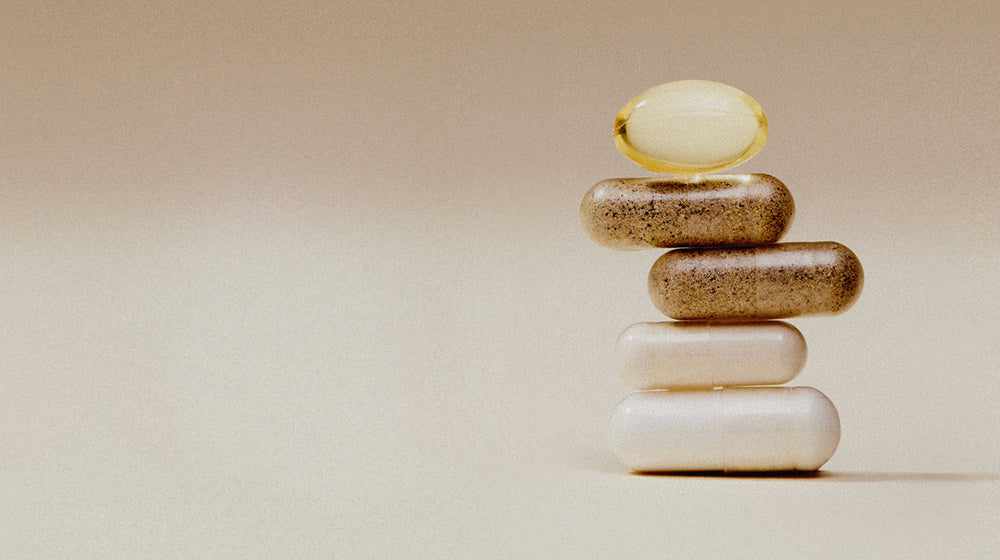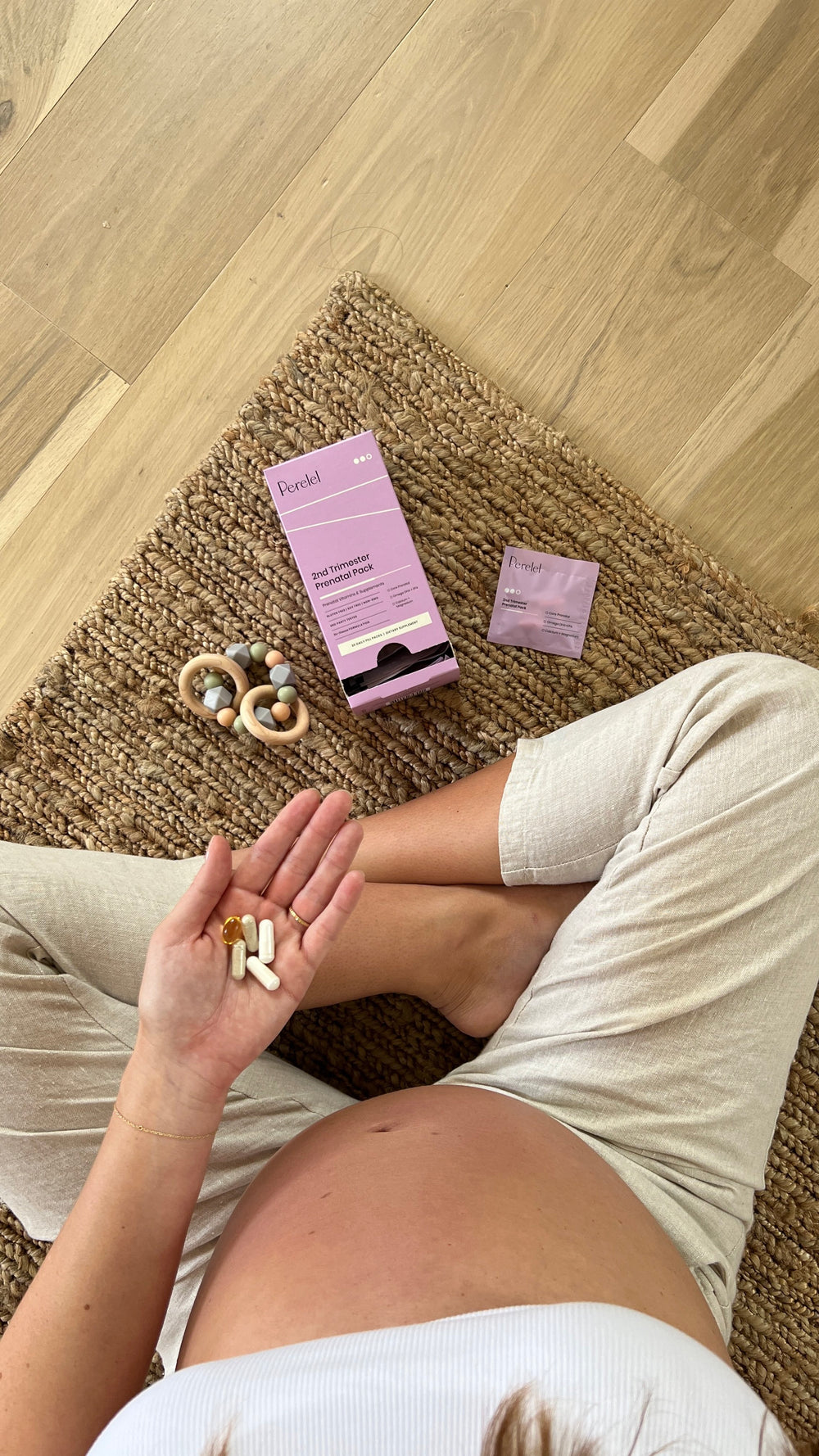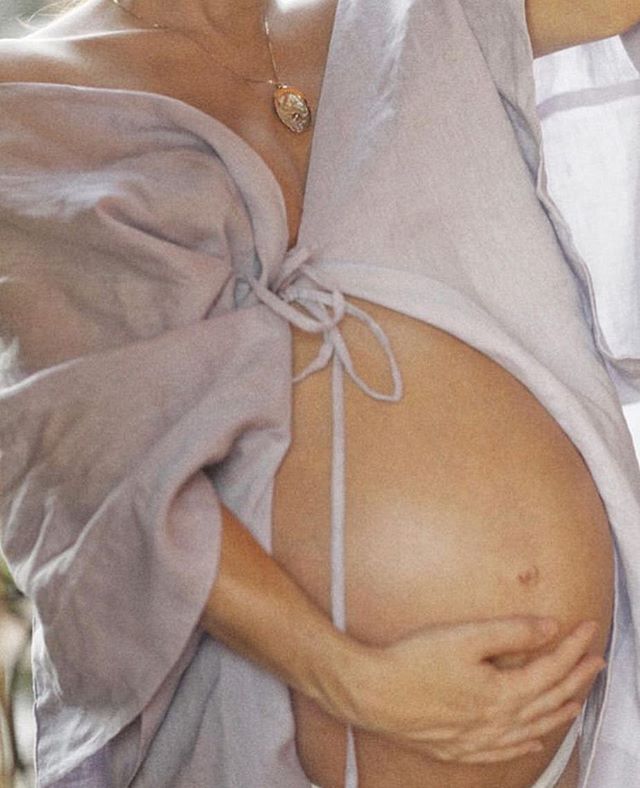A full-term pregnancy lasts 40 weeks. So, by week 19, you’re almost exactly halfway through your pregnancy. There’s almost as much of your pregnancy behind you as in front of you! And by this point, your body (and your baby!) have gone through so many exciting changes—changes you can expect to continue through this week and beyond.
So what, exactly, do those changes look like at week 19? Let’s take a look at everything you need to know about 19 weeks pregnant, including how you’re likely to feel at this point of your pregnancy, what’s new with your baby, and tips on how to make the most out of week 19.
How You’re Feeling at 19 Weeks
As mentioned, at week 19, you’re approaching the midway point in your pregnancy (which, since a full-term pregnancy lasts 40 weeks, you’ll hit next week). You’re also smack in the middle of your second trimester, which means that the more challenging symptoms of your first trimester, like nausea and extreme fatigue, should, thankfully, be in your rearview—and as a result, you’ll likely be feeling overall better, including more energetic, by week 19.
But while your first trimester symptoms are in the past, now that you’re hitting the midpoint of your pregnancy, there are other second trimester symptoms and side effects you can expect to navigate this week¹, including:
- Increased appetite and weight gain. The more you progress into your pregnancy, the more your baby will grow—and in order to keep up with that growth, you’ll probably experience an increase in appetite. Your weight will also continue to increase—and by this point in your pregnancy, you’ll likely be able to see a little baby bump!
- Dizziness. Some people experience dizziness during their second trimester—particularly if they’re dehydrated.
- Leg cramps. Leg cramps are common in the second and third trimester²—and since you’re well into your second trimester, if you haven’t noticed them before, you’ll start feeling them around week 19.
- Back pain. Around week 19, you may start to experience an uptick in aches and pains, including in your back³, thanks to your growing uterus and added weight—and the way your posture shifts to accommodate it.
By week 19, your baby is moving around—and, chances are, by this point, you’ll be able to feel it, as their movements become more forceful as they grow and develop.
(One thing to note: if you haven’t felt your little one kicking by now, don’t be discouraged. While most parents-to-be feel movement anywhere between week 18 and week 22, it can sometimes take longer—especially if it’s your first pregnancy⁶.)
$49.95
$49.95
$46.95
Shop the Article:

2nd Trimester Prenatal Pack
/ Month
Shop Now

3rd Trimester Prenatal Pack
/ Month
Shop Now

Cellular Hydration Powder
/ Month
Shop Now
What’s New With Your Baby
Week 19 is a big week for your baby’s growth and development! Here’s what’s happening with your baby this week.
- At week 19, your baby is around 6 inches long and weighs around half-a-pound (give or take an ounce or so). That’s the size of a mango.²
- Around week 19, your baby develops vernix caseosa, a waxy, white substance that protects their skin from the amniotic fluid in your uterus.³
- By week 19, you’ll be able to see your baby’s facial features—like their lips, ears, and nose—on an ultrasound.
- By week 19 is when your baby’s sensory development goes into overdrive—with all five of their senses (seeing, hearing, tasting, smelling, and touching) growing rapidly during this stage³.
- Around week 19 is also when your baby’s adult teeth start developing (behind their first set).⁴
At this point in your pregnancy, your baby is also starting to develop sleep/wake cycles—and you may start to notice specific timeframes where they’re more active vs. times when they’re at rest.
Your Week 19 To-Do List
Each week, you want to make sure you’re taking steps to take care of your and your baby’s health. So what, exactly, does that look like in week 19?
Here are some checklist items to add to your pregnancy to-do list this week:
1. Take your supplements
At this point in your pregnancy, it’s important to take supplements. Supplements help to fill any nutritional gaps from your diet—and ensure that you have what you need to support yourself and your baby as you progress through your pregnancy.
And, because your nutrient needs change throughout your pregnancy, it’s also important to take supplements that are specifically designed to support your current pregnancy stage—like Perelel’s 2nd Trimester Prenatal Pack ($50). Created by a team of leading OB/GYNs, this vitamin pack contains the supplements you need for optimal nutrition during your second trimester of your pregnancy (including week 19!)—including calcium, magnesium, and DHA + EPA (omega-3 fatty acids), and a prenatal vitamin.
Perelel’s 2nd Trimester Prenatal Pack:
- Supports relaxation
- Supports brain development
- Builds strong teeth and bones
- Provides optimal nutrition to support you and your baby
If you’re not already taking prenatals and pregnancy supplements, week 19 is a great time to start—so consider adding Perelel’s 2nd Trimester Prenatal Pack to your daily routine.
2. Drink plenty of water
Hydration is always important. But it’s especially important when you’re pregnant.
Dehydration can cause a host of issues during your pregnancy—including exacerbating certain symptoms that tend to show up during your second trimester, including leg cramps and dizziness. Aim to drink between 8 and 12 cups (or between 64 oz and 96 oz) of water every day.⁵
If you’re having a hard time tracking your water intake, consider buying a large bottle! While most water bottles are between 24 and 32 ounces, there are larger options out there, even up to a gallon, that will allow you to more easily track your water intake; just fill it up with your daily water intake—and then make sure to empty the bottle before you go to sleep.
3. Make an appointment for your anatomy scan
Right around this point in the pregnancy is when your doctor will want to perform your anatomy scan⁶. During this ultrasound, your doctor will review your baby’s growth and development to make sure that everything looks healthy and on track, including their organ development and physical development.
If you don’t already have an anatomy scan scheduled, reach out to your doctor ASAP and get it on the calendar. Also, your anatomy scan is generally where doctors let you know the sex of the baby—so, if you want the sex to be a surprise for the delivery room, make sure to let them know beforehand.
4. Start thinking about your maternity wardrobe
By week 19, your body has changed quite a bit—and from this point forward, it’s going to be changing even more. And while you might have been able to get away with wearing your day-to-day clothes up until this point, as your belly grows and gets bigger, your non-pregnancy wardrobe isn’t going to cut it—which makes week 19 a great time to start thinking about your maternity wardrobe.
Make sure you have plenty of comfy clothes that can accommodate your growing belly and body; maternity pants can be a great choice as they grow with you. And if you don’t want to invest in a brand new wardrobe, not to worry; thrift stores and secondhand shops often have great maternity options.
Next up: What happened in Week 18, plus what to know about your Week 20 scan.

theFolio in Your Inbox
Sign up to receive doctor-backed, stage-specific content in your inbox each week.
References:
1. Mayo Clinic. 2nd trimester pregnancy: what to expect.
2. What to Expect. 19 Weeks Pregnant.
3. Babylist. 19 Weeks.
4. NHS. Week 19.
5. The American College of Obstetricians and Gynecologists. How much water should I drink during pregnancy?
6. Cleveland Clinic. 20-Week Ultrasound (Anatomy Scan).
This article is for informational purposes only. It is not, nor is it intended to be, a substitute for professional medical advice, diagnosis, or treatment and we recommend that you always consult with your healthcare provider. To the extent that this article features the advice of physicians or medical practitioners, the views expressed are the views of the cited expert and do not necessarily represent the views of Perelel.





















